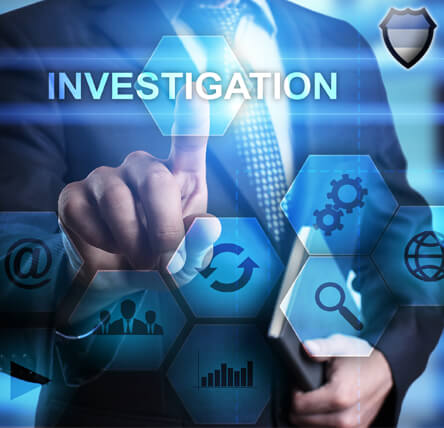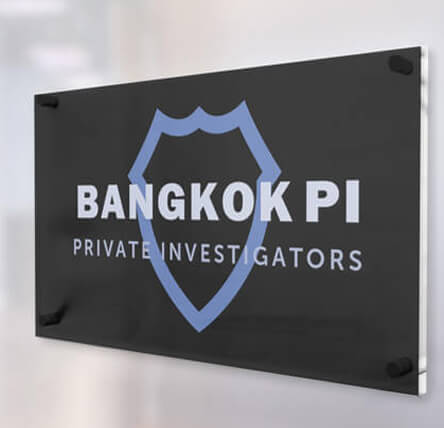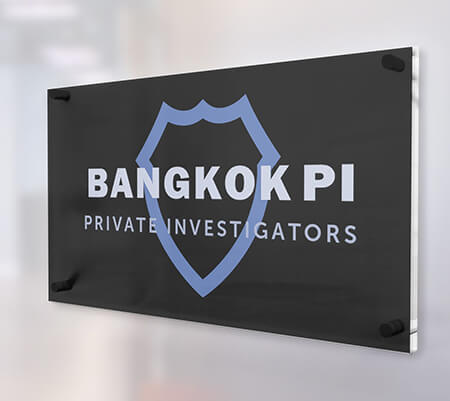7 Top Misconceptions about Private Investigators
August 9, 2024 - Reading time: 7 minutes
Updated: October 8, 2024
Private investigators have long been the subjects of fascination and mystery, often depicted in movies and television shows as daring individuals who will go to any lengths to uncover the truth. However, many of these portrayals are sensationalized and can lead to misconceptions about what private investigators can and cannot do. In this article, we aim to dispel some of the most common myths surrounding private investigators and provide clarity on the limitations and ethical boundaries of their profession.

1. Only Collecting Images from Public Areas
One of the most significant misconceptions about private investigators is that they can plant hidden cameras anywhere they please. In reality, private investigators are bound by strict legal and ethical guidelines that limit their surveillance activities. They can only collect images and videos from public areas. This means they may observe and capture footage of individuals in public places such as streets, parks, and shopping centres. However, they are not permitted to enter private properties, hotel rooms, or homes to plant hidden cameras or conduct surveillance.
2. Private Investigators CANNOT Hack into Phones or Social Media
Another prevalent myth is that private investigators have the ability to hack into phones or social media accounts to gather information. This is unequivocally false. Hacking into electronic devices or social media accounts is a violation of data privacy laws and is highly illegal. Private investigators must adhere to the law and cannot engage in any form of hacking to obtain information. Ethical private investigators will use legal methods to gather data, such as public records, interviews, and lawful surveillance.
3. No Authority to Make Arrests
Contrary to what some may believe, private investigators do not have the authority to make arrests. They are not law enforcement officers and therefore cannot detain or arrest individuals. Their role is to gather information and evidence, which can then be passed on to law enforcement or legal professionals if necessary. If a private investigator witnesses a crime, their duty is to report it to the police rather than taking matters into their own hands.
4. Cannot Obtain Confidential Information Without Consent
Private investigators are also often thought to have access to confidential information such as bank records, medical records, or phone records without consent. This is not the case. Accessing such information without proper authorisation is illegal and can result in severe legal consequences. Private investigators must operate within the boundaries of the law, which means they can only obtain confidential information with the proper consent or legal authority.
5. No Use of GPS Tracking Without Consent
The use of GPS tracking devices is another area where misconceptions abound. Private investigators cannot legally place a GPS tracker on someone's vehicle or property without their consent. Doing so would constitute an invasion of privacy and is against the law. Any surveillance or tracking must be conducted in a manner that respects the privacy rights of individuals.
6. Misconception of Unlimited Access to Databases
Many people believe that private investigators have unrestricted access to various government and private databases. While private investigators do have access to some databases that are not available to the general public, their access is far from unlimited. They must comply with legal standards and often require proper licensing or authorisation to access certain types of information. The idea that private investigators can pull up any data at will is a misconception.
7. Access to 'Locked' Social Media Accounts
As private investigators, we often utilize public records and social media as sources of information. In fact, many private investigators will maintain fictitious social media accounts, which can be used to approach subjects online during honey trap investigations, in order to test for infidelity. However, if a social media account is locked and only visible to the user's friends or followers, then an investigator will not be able to view the contents of that account unless the user accepts a friend request from the investigator's account.
Ethical Boundaries and Professional Conduct
Ethical considerations and professional conduct are paramount in the field of private investigation. Reputable private investigators adhere to a strict code of ethics that governs their behaviour and methods. They are committed to conducting investigations in a manner that is legal, ethical, and respectful of individuals' rights. Any deviation from these standards can result in legal penalties and damage to their professional reputation.
Working with Law Enforcement and Legal Professionals
Private investigators often work in collaboration with law enforcement and legal professionals, but their role is supportive rather than authoritative. They gather evidence and information that can assist in legal cases, but they do not have the power to enforce the law. Their findings can be crucial in legal proceedings, but they must always operate within the legal framework.
The Importance of Licensing and Certification
To ensure that private investigators operate within the bounds of the law, many regions require them to be licensed and certified. This process involves background checks, training, and adherence to legal and ethical standards. Licensing helps to maintain the integrity of the profession and ensures that private investigators are qualified to conduct their work responsibly.
In closing
It's essential to separate fact from fiction when it comes to private investigators. Misconceptions can lead to unrealistic expectations and misunderstandings about what private investigators can legally and ethically do. Private investigators are bound by strict legal and ethical guidelines that govern their conduct and methods. They can only collect images from public areas, cannot hack into phones or social media accounts, and do not have the authority to make arrests or access confidential information without consent.

This article is presented by Bangkok Investigators, a leading detective agency based in Thailand. Our team of professional private investigators adheres to the highest ethical standards and legal guidelines to provide reliable and trustworthy services. Visit the Bangkok Investigators homepage to learn more about us and the different services we offer.
Related articles
Search
Bangkok Investigators

Discover more about Bangkok Private Investigators on our homepage or by visiting our About Us page.